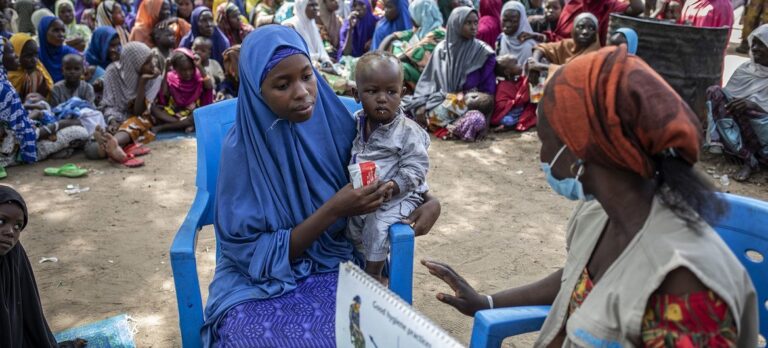The European Union (EU) has allocated the sum of €500,000 to address the escalating malnutrition crisis in Northern Nigeria.
This funding, according to a statement from the EU on Friday, will provide critical emergency aid to vulnerable children and mothers suffering from severe malnutrition in nine states: Adamawa, Benue, Borno, Katsina, Niger, Sokoto, Taraba, Yobe, and Zamfara.
While the EU explained that over 30,000 children urgently in need of treatment will benefit directly from the intervention, it noted that the support will be implemented through the Nigeria Red Cross Society, which is set to assist about 170,000 households at risk of malnutrition.
The programme will take a multi-faceted approach to tackle malnutrition, incorporating: community outreach, screening, and providing ready-to-use therapeutic food for uncomplicated cases.
Beyond immediate malnutrition needs, the programme aims to enhance health and nutrition interventions, support affected families to become more self-sufficient, intensify efforts to prevent malnutrition and promote healthy living, and ensure the safety and dignity of vulnerable populations
Scary data
According to the EU, an estimated 5.44 million children under the age of five are acutely malnourished in Adamawa, Borno, Yobe, Katsina, Sokoto, and Zamfara. It added that two million of these children are projected to require lifesaving care, especially during the ongoing lean season from June to September.
“The nutrition crisis is worsening, driven by ongoing conflict and growing insecurity. This has led to prolonged displacement, a loss of livelihoods, and a significant reduction in vulnerable families’ access to essential healthcare services,” part of the statement read.
“Compounding this situation are economic pressures and climate-related shocks such as flooding, as well as suboptimal maternal and child feeding practices.”
Government’s efforts to address malnutrition
Before now, the Nigerian government in 2024 established a ministerial task force to develop a comprehensive action plan targeting child malnutrition.
The plan, according to the Coordinating Minister of Health and Social Welfare, Muhammad Pate, will prioritise resource mobilisation and long-term solutions.
However, with the support of the EU, there are higher chances of vulnerable populations getting support aid based on need and in line with humanitarian principles.
“The European Commission has signed a €12 million humanitarian delegation agreement with the International Federation of Red Cross and Red Crescent Societies (IFRC), to support the Federation’s Disaster Response Emergency Fund (DREF). Funds from the DREF are mainly allocated to ‘small-scale’ disasters, those that do not give rise to a formal international appeal,” the statement added.
“The DREF was established in 1979 and is supported by contributions from donors. Each time a National Red Cross or Red Crescent Society needs immediate financial support to respond to a disaster, it can request funds from the DREF.”

